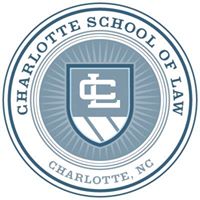Judge dismisses whistleblower lawsuit against ABA and Charlotte School of Law

A Florida judge has thrown out the remaining claims in a lawsuit alleging that the now-closed Charlotte School of Law flouted accreditation standards—and that the ABA should never have accredited the school in the first place. Law.com has the story.
U.S. District Judge Roy Dalton Jr. of the Middle District of Florida said former Charlotte law professor Barbara Bernier hadn’t adequately fixed the problems with her original complaint, despite adding the ABA as a defendant. Bernier’s claims that the for-profit school and its parent company were defrauding the federal government failed to state a claim, and in any case were procedurally barred by the False Claims Act’s prohibition against copycat lawsuits.
The suit also contains state-law negligence claims, which include the claims against the ABA. Dalton wrote in his opinion that those claims were not enough by themselves to keep the case in federal court. He dismissed them without prejudice.
“No federal claim will continue here, and plaintiffs’ claim against the ABA, like the other state-law claims, just arrived,” the judge wrote. “Plus, the claim presents a pretty run-of-the-mill negligence question; it’s not wrapped up in a federal issue that would lean in favor of resolution by a federal court.”
Barry Currier, the ABA’s managing director of accreditation and legal education, said in a statement that the ABA welcomed the ruling.
“We never thought we should have been part of it,” he said. “We will continue to serve the best interests of students and the public through the ABA law school accreditation process, which has repeatedly been upheld by courts and has been approved by the U.S. Department of Education.”
Bernier was a professor at the Charlotte School of Law, recruited from a tenured position at a traditional nonprofit law school to work at the for-profit school. Her lawsuit alleged that the school was ignoring certain accreditation standards to maximize its profits. That includes admitting students with bad grades and little chance of passing the bar; discouraging students from taking the bar—even paying them to skip it—if they seemed likely to fail; and hiring students into meaningless jobs to inflate graduates’ employment rates.
The school failed to disclose this to the federal government, thus defrauding the government’s student loan program, Bernier claimed. The ABA contributed by accrediting the Charlotte School of Law, she claimed in her amended complaint, thus making it possible for students to take out federal loans. Plaintiff Ese Love, a former Charlotte student, said in the amended complaint that she had more than $350,000 in student debt from a discredited school.
Multiple former students are separately suing the school.
The Charlotte School of Law is one of three schools run by for-profit parent company InfiLaw, all three of which have encountered accreditation problems in recent years. The Arizona Summit Law School in Phoenix is scheduled to close at the end of spring 2020. The Florida Coastal School of Law in Jacksonville, Florida, remains open, but the ABA Section of Legal Education and Admissions to the Bar affirmed in September its finding that the school is out of compliance, over the school’s vigorous objections. All three schools have sued the ABA, arguing that the legal ed section’s Accreditation Committee has denied them due process.
Write a letter to the editor, share a story tip or update, or report an error.


